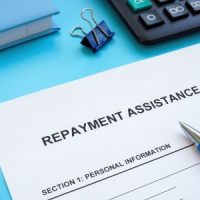The Repayment Assistance Plan: A Closer Look

A new student loan repayment program for all loans taken out after July 1, 2026 is a hybrid between student loan forgiveness and pay-what-you-owe, according to the Trump Administration.
RAP uses the borrower’s adjusted gross income to calculate monthly payments on a sliding scale. Borrowers who earn under $20,000 must pay 1 percent of their AGI per year ($120 per year if they earn less than $10,000). At the top end of the scale, borrowers who earn more than $100,000 annually pay 10 percent of their AGI per year. RAP also includes a $50 per dependent child monthly payment reduction. If RAP doesn’t reduce monthly payments by at least $50, an additional credit makes up the difference (up to $50 or the payment amount, whichever is less).
RAP forgives any remaining UPB (unpaid principal balance) after thirty years of payments, sharply limits other kinds of payment relief, such as forbearances, and allows married borrowers to exclude their spouse’s income by filing taxes separately.
Student Loan Forgiveness and Bankruptcy Filing
The RAP is a pretty good deal for most student loan borrowers who aren’t in financial distress and want an additional financial cushion. But RPA doesn’t help distressed borrowers.
These debtors can file bankruptcy and get the relief they need. Bankruptcy’s Automatic Stay is about the only way to stop:
- Creditor harassment,
- Collections lawsuits,
- Wage garnishment,
- Foreclosure, and
- Repossession.
In fact, the Automatic Stay prohibits creditor-debtor contacts. This relief is available in both Chapter 7 and Chapter 13 bankruptcies. Chapter 7 discharges most unsecured debts, including student loans in some cases, in as little as nine months. Chapter 13 gives debtors up to five years to catch up on past-due student loan payments and erase other allowed claim delinquency, such as past-due mortgage payments.
The Biden-era bankruptcy discharge rules remain in place. These rules replaced the harsh Brunner Rule that basically blocked student loan forgiveness in bankruptcy.
Legally, student loans are priority unsecured debts which, like past-due taxes, are dischargeable in certain situations only.
Bankruptcy and UPB Student Loan Forgiveness
Even if student loans aren’t dischargeable in bankruptcy, a Chicago bankruptcy lawyer uses the bankruptcy litigation system to at least obtain a partial discharge.
Since student loans aren’t automatically dischargeable, a Chicago bankruptcy lawyer must file a motion to discharge this debt, even in a Chapter 7 “liquidation” bankruptcy. Usually, when one side files such a motion, the bankruptcy judge automatically refers the matter to mediation.
During mediation, both sides have a duty to negotiate in good faith. “Pay what you owe or else” is not a good-faith negotiation position. The student loan creditor must honestly try to cut a deal and avoid a hearing. Therefore, at least partial student loan discharge is usually available in bankruptcy.
Furthermore, filing bankruptcy technically wipes out all existing repayment agreements. Therefore, the debtor must voluntarily reaffirm a debt. A reaffirmation agreement is an opportunity for a Chicago bankruptcy lawyer to renegotiate key terms, such as interest rate and payment date.
Connect With a Hard-Hitting Cook County Lawyer
No matter what kind of financial problem you are having, bankruptcy could be a way out. For a free consultation with an experienced bankruptcy attorney in Chicago, contact the Bentz Holguin Law Firm, LLC. We routinely handle matters throughout the Prairie State.
Source:
bysavi.zendesk.com/hc/en-us/articles/40842365080339-Understanding-the-RAP-Revised-Assistance-Plan-Student-Loan-Repayment-Option
